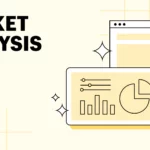In the world of finance, there’s always something new to consider, and one of the most intriguing topics in recent years has been the relationship between the price of Bitcoin (BTC) and inflation. This digital currency, often seen as a speculative investment, has increasingly been discussed in the context of economic stability and inflation rates. Let’s dive into this fascinating connection in a more casual manner, exploring the nuances of how btc price and inflation might be linked.
The Rise of Bitcoin and Its Price Fluctuations
Bitcoin, the first and most well-known cryptocurrency, has experienced significant price fluctuations since its inception. Starting as a novelty, BTC price has soared to new heights, only to plummet in value, reflecting the speculative nature of the market. Despite these ups and downs, Bitcoin has managed to maintain its relevance, with many investors considering it a hedge against inflation. The question is, does the BTC price truly offer protection against the erosion of purchasing power?
Understanding Inflation
Inflation is a complex economic phenomenon that affects the value of money over time. As inflation increases, the purchasing power of money decreases, meaning that each unit of currency buys fewer goods and services. This is typically measured by the Consumer Price Index (CPI), which tracks the average change in prices over time. Central banks around the world use this data to adjust interest rates and implement monetary policies to control inflation.
Bitcoin as a Hedge Against Inflation?
The idea that Bitcoin could act as a hedge against inflation stems from its limited supply and decentralized nature. Unlike fiat currencies, which can be printed at will by central banks, there will only ever be 21 million Bitcoins. This scarcity, combined with the increasing demand for BTC, has led some to believe that it could preserve value during times of high inflation. However, the volatility of BTC price makes this a contentious point.
The Impact of Inflation on BTC Price
When inflation rates rise, investors often seek alternative assets to protect their wealth. Traditional safe-havens like gold and bonds have been the go-to choices, but with the advent of cryptocurrencies, Bitcoin has emerged as a new contender. The influx of capital into BTC during times of high inflation can drive up its price, as seen in various instances where economic uncertainty has coincided with a surge in Bitcoin’s value.
Correlation vs. Causation
It’s important to distinguish between correlation and causation when discussing the relationship between BTC price and inflation. While there may be times when the two seem to move in tandem, it doesn’t necessarily mean that one causes the other. Various factors influence the price of Bitcoin, including market sentiment, technological advancements, and regulatory changes. Inflation might be one of these factors, but it’s not the sole determinant of BTC price.
The Role of Central Banks and Monetary Policy
Central banks play a crucial role in managing inflation through monetary policy. When central banks lower interest rates or engage in quantitative easing, the value of fiat currencies can decrease, potentially leading to inflation. In such scenarios, some investors turn to Bitcoin as a store of value, which can influence its price. However, the effectiveness of Bitcoin as a hedge is still a topic of debate among economists and investors.
The Future of BTC Price and Inflation
Predicting the future of BTC price is a challenging endeavor, as it’s influenced by a myriad of factors, including inflation. As the global economy evolves and central banks continue to grapple with inflation, the role of Bitcoin as a hedge against inflation will be closely watched. Whether BTC price will consistently rise in response to inflation or if it will continue to be a volatile asset remains to be seen.
Conclusion
The connection between BTC price and inflation is a multifaceted issue that requires a nuanced understanding of both economic indicators and market dynamics. While some see Bitcoin as a potential safeguard against inflation, others view it as a highly speculative asset. As we continue to observe the interplay between these two forces, it’s clear that the story of Bitcoin and inflation is far from over. It’s a topic that will undoubtedly continue to shape financial discussions and strategies for years to come.










